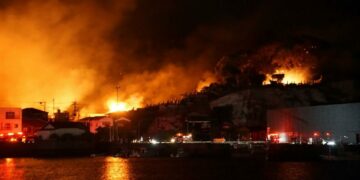Japanese Ambassador to Nigeria, Matsunaga Kazuyoshi, has reiterated the commitment of Japan to peace and stability in Africa through human resource development, border control support, and assistance for building judicial and administrative systems.
The ambassador, represented by the Head of Mission in Nigeria, Hiromi Otsuki, made the commitment at the graduation of participants of comprehensive protection of civilians course 37/24 on Friday in Abuja.
The two-week course was organised by Martin Luther Agwai International Leadership and Peace Keeping Centre (MLAILPKC) and sponsored by the United Nations Development Programme (UNDP), in conjunction with the Government of Japan.
He reiterated that protection of civilians was a fundamental principle of international law.
Kazuyoshi said civilians, especially women and children, were often the most vulnerable victims of armed conflict, often forced to flee their homes, lose loved ones, and face constant threat of violence.
He said Japan had been committed to peace and stability in Africa by providing assistance including human resource development, border control support, and assistance for building judicial and administrative systems.
This, according to him is for the purpose of consolidation of democracy and the strengthening of the rule of law.
He said “Japan’s commitment to civilian protection is reflected in our financial support for UN peacekeeping operations and other initiatives aimed at protecting civilians.
“We also provide training and capacity-building assistance for countries particularly in post-conflict situations.
“The skills and knowledge that you have gained in this course will be essential as you work to protect civilians in your respective postings and I ask you to continue to develop your skills and knowledge in the area of civilian protection,’’ he said.
Member, Board of Trustees of MLAILPKC, retired Maj.-Gen. Obidah Ethan reiterated that the protection of civilians during armed conflicts is both moral imperative and collective responsibility of all agencies and stakeholders.
Ethan said that protecting civilians was not just a moral imperative, but also a collective responsibility that required courage and determination.





